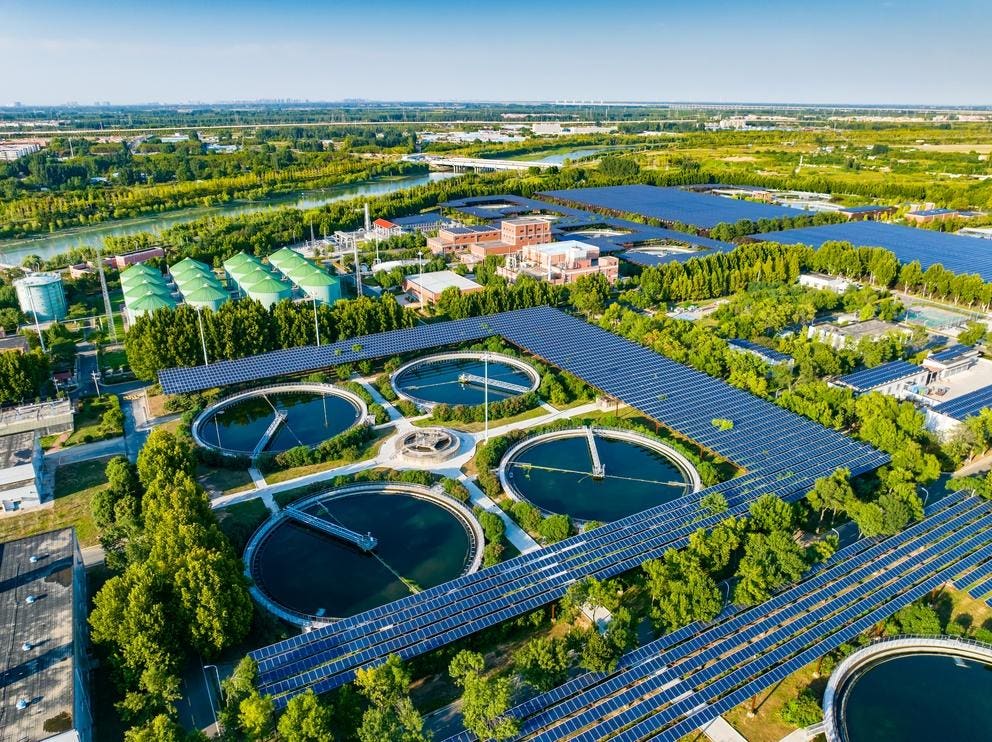As CEO of ADAR Technologies, Dan Kelly is dedicated to advancing cutting-edge solutions that transform waste into valuable resources.
As we flush our toilets and drain our sinks, few of us consider where our wastewater goes next. Yet, the wastewater treatment industry, a cornerstone of modern sanitation, is facing challenges that threaten our environment. Innovations in sustainable technologies offer hope for cleaner water and a healthier planet for future generations.
The Hidden Costs Of Traditional Wastewater Treatment
Traditional wastewater treatment plants are essential for cleaning water before it returns to our rivers, lakes and oceans. But these facilities come with a hefty environmental price tag:
1. High Energy Consumption: Treating millions of gallons of wastewater daily requires substantial electricity. The U.S. Environmental Protection Agency estimates that these facilities use 2% of the nation’s electricity, contributing substantially to greenhouse gas emissions due to heavy reliance on fossil fuels. This energy demand, driven by processes like aeration and sludge treatment, underscores the need for energy-efficient solutions.
2. Chemical Dependency: To disinfect and clean wastewater, treatment plants often rely on chlorine, ammonia and other chemicals. While effective, their use introduces risks to aquatic life and human health, especially if residues or byproducts are not managed properly. Additionally, the production and transportation of these chemicals further exacerbate their carbon footprint.
3. Sludge Management: A byproduct of wastewater treatment is sludge—a mixture of organic and inorganic materials that often contains heavy metals and pathogens. Disposal methods, such as landfilling or incineration, pose risks to soil, air and water quality. Properly managing this byproduct remains one of the industry’s most pressing challenges.
4. Leachate Challenges: Leachate, a highly polluted liquid that seeps from waste materials, exacerbates the problem. Treating leachate demands significant energy and chemical inputs, particularly in regions with limited infrastructure, posing global challenges from developed to developing countries.
The Promise Of Sustainable Alternatives
In response to these challenges, researchers and innovators are revolutionizing wastewater treatment with groundbreaking technologies that prioritize efficiency and environmental stewardship. These innovations are reshaping the industry, making it more sustainable while addressing the pressing need for cleaner water and reduced ecological impact.
Biological Treatment
Biological treatment methods leverage natural bacteria and microorganisms to break down organic matter in wastewater. This approach not only reduces the need for harmful chemicals but also minimizes the carbon footprint of treatment plants. By mimicking natural ecosystems, these technologies provide an eco-friendly solution that is both effective and sustainable.
Advanced Filtration Technologies
The introduction of advanced filtration technologies, such as membrane bioreactors and advanced oxidation processes, marks a significant step forward. These systems provide superior filtration, removing a wide range of contaminants that traditional methods often fail to address, such as pharmaceuticals and microplastics. Importantly, these technologies operate with minimal environmental impact, making them ideal for modern treatment plants.
Resource Recovery
One of the most exciting developments in wastewater treatment is the shift toward resource recovery. Advanced technologies, such as anaerobic digestion, enable facilities to extract biogas from organic waste, converting it into electricity and heat. This not only reduces waste but also creates renewable energy, offsetting the energy demands of treatment plants.
In addition, innovations in sludge management are turning a problem into an opportunity. New methods allow for drying and sanitizing sludge, transforming it into nutrient-rich fertilizers. These fertilizers not only improve agricultural productivity but also reduce the volume of waste requiring disposal.
Addressing Leachate Challenges
Solutions for handling leachate are also improving. Emerging technologies are capable of treating leachate more efficiently, reducing the need for energy-intensive pretreatment processes. These innovations are especially promising for developing countries, where advanced leachate management can prevent environmental degradation and improve public health.
Moving Toward A Sustainable Future
The shift toward sustainable wastewater treatment is no longer a choice; it’s a necessity. Around the globe, governments, industries and communities are recognizing the pressing need to adopt cleaner, more efficient technologies to safeguard our water resources and reduce environmental impacts. Advanced systems like biological treatment and resource recovery are leading the way, demonstrating that eco-friendly solutions are both practical and impactful.
Policy plays a pivotal role in this transformation. Stricter environmental regulations and incentives for green technology adoption are encouraging wastewater treatment facilities to rethink their approaches. At the same time, partnerships between public and private sectors are driving innovation and funding projects that prioritize sustainability.
Collaboration on a global scale is also essential. By sharing knowledge and technology, developed nations can support less-resourced countries in adopting advanced wastewater treatment practices. This not only addresses pressing environmental challenges but also fosters equity in access to clean water and sanitation worldwide.
A Call To Action
The challenges of traditional wastewater treatment are undeniable, but the solutions are within reach. It’s time to reimagine the industry as a cornerstone of sustainability. Adopting innovative technologies can turn treatment plants into hubs of resource recovery and environmental stewardship.
As individuals, we can support this transition by advocating for policies that promote green infrastructure and by reducing water waste in our daily lives both at home and at our places of work. On a larger scale, investment in research and education in the public and private sectors is critical to empowering future generations to build on the progress being made today.
Our actions now will determine the quality of water and life for years to come. By embracing innovation and prioritizing sustainability, we can ensure that wastewater treatment is not only about cleaning water but also about protecting our planet’s future. Together, we can transform a necessary process into an opportunity for global impact.
Forbes Business Council is the foremost growth and networking organization for business owners and leaders. Do I qualify?
Read the full article here

